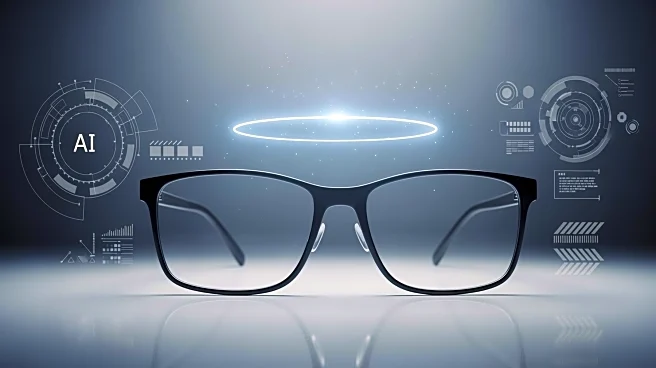What's Happening?
Halo, a new AI-powered smart glasses product developed by former Harvard students AnhPhu Nguyen and Caine Ardayfio, is designed to enhance user interactions by providing real-time information during conversations.
The glasses can listen, record, transcribe, and deliver relevant answers to questions, aiming to make users appear more knowledgeable. However, the product has sparked ethical debates, particularly concerning privacy and consent. In California, where both parties must consent to recording, the use of such devices could potentially breach legal requirements. Additionally, the glasses' functionality raises concerns about confidentiality, especially for individuals whose professions demand privacy.
Why It's Important?
The introduction of always-on AI wearables like Halo glasses could significantly impact privacy norms and legal frameworks in the U.S. As these devices become more prevalent, they may challenge existing privacy laws and ethical standards, particularly in states with strict consent requirements for recording. The technology could benefit users by enhancing memory and providing instant information, but it also risks infringing on the privacy of those around them. This development could lead to increased scrutiny from legal and privacy advocates, potentially influencing future regulations on wearable technology.
What's Next?
As Halo continues to develop, it is likely to face legal challenges and calls for clearer regulations regarding the use of AI wearables. Stakeholders, including privacy advocates, legal experts, and tech companies, may engage in discussions to address these concerns. The company may need to implement features that ensure compliance with privacy laws, such as automatic notifications or consent mechanisms. The broader tech industry will be watching closely, as the outcomes could set precedents for future AI and wearable technology innovations.
Beyond the Headlines
The ethical implications of AI wearables extend beyond privacy concerns. They touch on issues of trust and authenticity in human interactions. As these devices become more integrated into daily life, society may need to reconsider what it means to have genuine conversations and how technology influences personal relationships. The potential for misuse, such as unauthorized recording or data breaches, also poses significant risks that need to be addressed.









